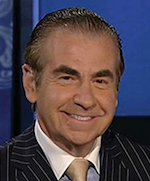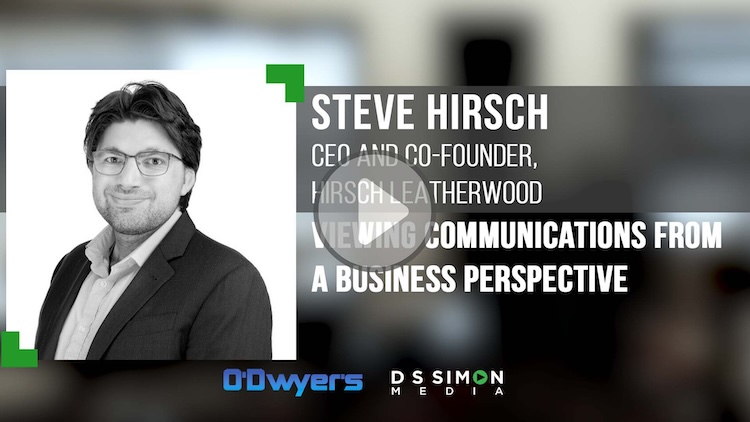 Fraser Seitel |
In 1968, the late, great Jack O’Dwyer had the prescience to found a newsletter devoted to the budding, uncertain practice of public relations.
It was far from a sure thing.
Public relations at the time was a bit of a backwater, little-considered, low-level occupation best known for three things:
1. The field was dominated by men.
2. Most of them existed by agreeing with everything their employers said, whether right or wrong, fair or unfair, right or wrong. Thus, the term “yes men.”
3. The vast majority of public relations men of the time specialized in drinking martinis.
Nonetheless, the intrepid, indefatigable, never-take-no-for an answer O’Dywer plunged headlong into the business of covering — relentlessly and often unforgivingly — the practice of public relations.
And here we stand a half-century later, with Jack sadly now gone, in an age where PR has become not only accepted but respected, even feared for its potential power.
In fact, the year just ahead promises — threatens? — to unleash an era in which public relations is everything.
Consider as Exhibit A, B and C: the (groan) “presidency” of Donald J. Trump.
• Donald Trump’s wild ride to the White House depended solely on public relations. Trump himself was largely a creation of the media: a preening, bombastic scion of inherited real estate wealth who dominated print, broadcast and social media with his outrageous bravado, extramarital escapades and ubiquity.
Despite knowing very little about policy or public affairs and lacking the interest to read or learn, Trump was elected President basically because he was well known. In other words, his public relations celebrity.
• Once President, Trump spent his first two years governing by tweet, the short-form communications device that caters to meager thinkers with short attention spans and large egos.
While his critics deplored such a witless and often-insensitive tactic, Trump’s use of Twitter was, at times, pure genius.
As he surmised, the media who despised him nonetheless slavishly covered his every cryptic, misspelled missive, and Trump tweets largely controlled the nation’s daily agenda. So much so that future U.S. Presidents, most of whom will publicly condemn the Trump years, will likely adopt some form of the Trump tweeting strategy.
• Today, as we head into the third year of the Trump presidency, the President has clearly lost his PR edge.
His tweets no longer resonate positively. On the contrary, forced to rely on his own suspect public relations instincts, recent tweets — like the clueless rant against Federal Reserve Policy and the more clueless announcement by his Treasury Secretary of checks on bank liquidity — have damaged him considerably in the one area he can’t afford to lose — the stock market.
Ironically, the stock market’s sudden, precipitous, seemingly unending fall has little to do with an economy that is still chugging along, with wages that have generally improved across the board or profits which continue to perform well.
The market decline is based, pure and simple, on Donald Trump’s losing the reins of public relations. As the stock market goes, so goes the Trump Presidency.
So, what can he do to regain the public relations edge?
For one thing, he can announce new, needed regulations on the computer program traders who have disrupted trading by exacerbating market movements. For another, he can tweet that the U.S. and China have agreed on a fair trade policy, negating the need for new tariffs. Both public relations moves could restore the equilibrium of the Trump presidency.
Failing policy moves like these, the Trump presidency will continue to suffer public relations damage. Were that to result, not only will he certainly be impeached by House Democrats but also risks being convicted by Senate Republicans tired of their own loss of credibility.
***
Fraser P. Seitel has been a communications consultant, author and teacher for 40 years. He is author of the Pearson text “The Practice of Public Relations,” now in its 13th edition, and co-author of “Rethinking Reputation" and "Idea Wise.” He may be reached directly at [email protected].










 Have a comment? Send it to
Have a comment? Send it to 
No comments have been submitted for this story yet.